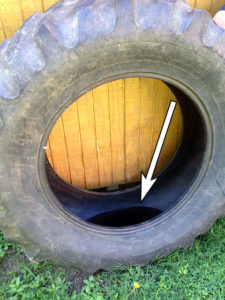West Nile Virus Found in NC Mosquito
go.ncsu.edu/readext?616784
en Español / em Português
El inglés es el idioma de control de esta página. En la medida en que haya algún conflicto entre la traducción al inglés y la traducción, el inglés prevalece.
Al hacer clic en el enlace de traducción se activa un servicio de traducción gratuito para convertir la página al español. Al igual que con cualquier traducción por Internet, la conversión no es sensible al contexto y puede que no traduzca el texto en su significado original. NC State Extension no garantiza la exactitud del texto traducido. Por favor, tenga en cuenta que algunas aplicaciones y/o servicios pueden no funcionar como se espera cuando se traducen.
Português
Inglês é o idioma de controle desta página. Na medida que haja algum conflito entre o texto original em Inglês e a tradução, o Inglês prevalece.
Ao clicar no link de tradução, um serviço gratuito de tradução será ativado para converter a página para o Português. Como em qualquer tradução pela internet, a conversão não é sensivel ao contexto e pode não ocorrer a tradução para o significado orginal. O serviço de Extensão da Carolina do Norte (NC State Extension) não garante a exatidão do texto traduzido. Por favor, observe que algumas funções ou serviços podem não funcionar como esperado após a tradução.
English
English is the controlling language of this page. To the extent there is any conflict between the English text and the translation, English controls.
Clicking on the translation link activates a free translation service to convert the page to Spanish. As with any Internet translation, the conversion is not context-sensitive and may not translate the text to its original meaning. NC State Extension does not guarantee the accuracy of the translated text. Please note that some applications and/or services may not function as expected when translated.
Collapse ▲Many of you may have seen the news about the New Hanover County Public Health office reported that a mosquito collected in the sampling program tested positive for West Nile virus. What this simply means is that there are likely some WNV-infected mosquitoes present in the area, but there’s no real way to estimate how widespread those mosquitoes might be. From 2012-2017, there were 25 reported cases of West Nile virus in North Carolina and seven reported deaths. In 2018, there were 10 reported WNV cases and two deaths. The take-home message here remains the same – that personal protection, such as wearing an insect repellent when spending times outdoors, is the extremely important particularly when air temperatures are high and we’re inclined to wear short-sleeved shirts and shorts. Part of that time outdoors needs to be spent on removing those sources of standing/stagnating water that too often serve as mosquito breeding grounds. This won’t stop the problem entirely, but it’s a good start.
For more information, visit:



